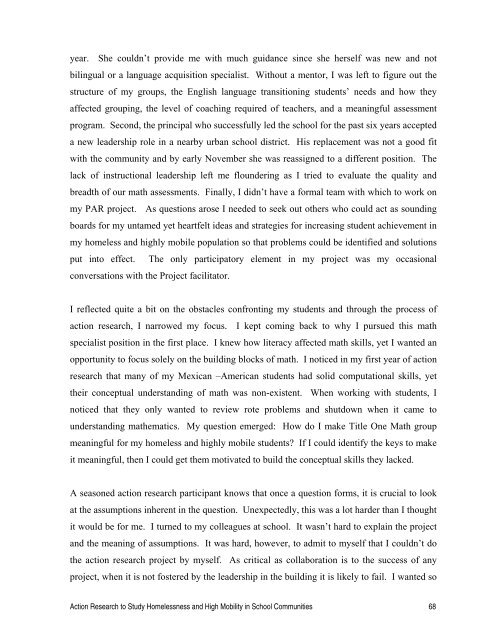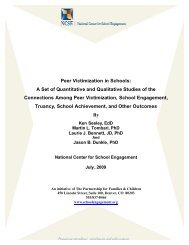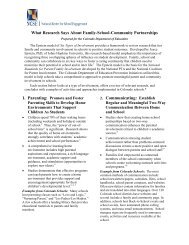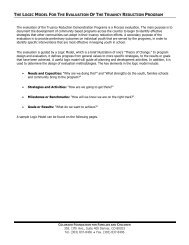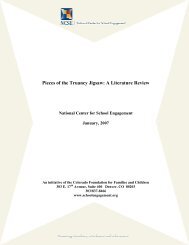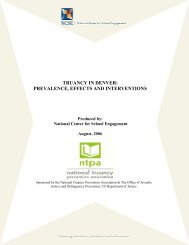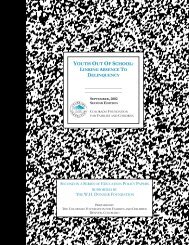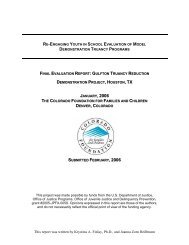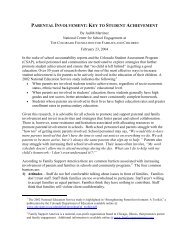Section 1: Academic Achievement - National Center for School ...
Section 1: Academic Achievement - National Center for School ...
Section 1: Academic Achievement - National Center for School ...
Create successful ePaper yourself
Turn your PDF publications into a flip-book with our unique Google optimized e-Paper software.
year. She couldn’t provide me with much guidance since she herself was new and not<br />
bilingual or a language acquisition specialist. Without a mentor, I was left to figure out the<br />
structure of my groups, the English language transitioning students’ needs and how they<br />
affected grouping, the level of coaching required of teachers, and a meaningful assessment<br />
program. Second, the principal who successfully led the school <strong>for</strong> the past six years accepted<br />
a new leadership role in a nearby urban school district. His replacement was not a good fit<br />
with the community and by early November she was reassigned to a different position. The<br />
lack of instructional leadership left me floundering as I tried to evaluate the quality and<br />
breadth of our math assessments. Finally, I didn’t have a <strong>for</strong>mal team with which to work on<br />
my PAR project. As questions arose I needed to seek out others who could act as sounding<br />
boards <strong>for</strong> my untamed yet heartfelt ideas and strategies <strong>for</strong> increasing student achievement in<br />
my homeless and highly mobile population so that problems could be identified and solutions<br />
put into effect. The only participatory element in my project was my occasional<br />
conversations with the Project facilitator.<br />
I reflected quite a bit on the obstacles confronting my students and through the process of<br />
action research, I narrowed my focus. I kept coming back to why I pursued this math<br />
specialist position in the first place. I knew how literacy affected math skills, yet I wanted an<br />
opportunity to focus solely on the building blocks of math. I noticed in my first year of action<br />
research that many of my Mexican –American students had solid computational skills, yet<br />
their conceptual understanding of math was non-existent. When working with students, I<br />
noticed that they only wanted to review rote problems and shutdown when it came to<br />
understanding mathematics. My question emerged: How do I make Title One Math group<br />
meaningful <strong>for</strong> my homeless and highly mobile students? If I could identify the keys to make<br />
it meaningful, then I could get them motivated to build the conceptual skills they lacked.<br />
A seasoned action research participant knows that once a question <strong>for</strong>ms, it is crucial to look<br />
at the assumptions inherent in the question. Unexpectedly, this was a lot harder than I thought<br />
it would be <strong>for</strong> me. I turned to my colleagues at school. It wasn’t hard to explain the project<br />
and the meaning of assumptions. It was hard, however, to admit to myself that I couldn’t do<br />
the action research project by myself. As critical as collaboration is to the success of any<br />
project, when it is not fostered by the leadership in the building it is likely to fail. I wanted so<br />
Action Research to Study Homelessness and High Mobility in <strong>School</strong> Communities 68


